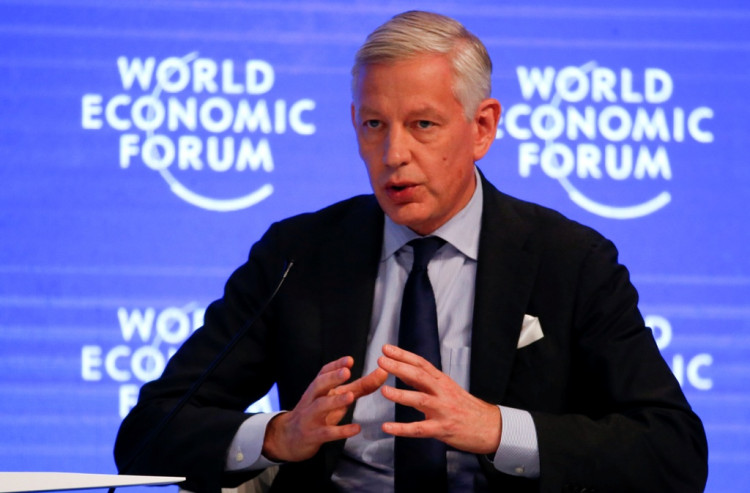International experts speaking at the ongoing World Economic Forum (WEF) in Davos, Switzerland blasted president Donald Trump's phase one trade deal with China as a "disaster" that does nothing to resolve the underlying issues that ignited Truump's trade war against China in the first place. Ironically, the "Band Aid" deal will also make it legal for China to expand its already huge trade deficit with the United States simply by following the deal's provisions, according to one expert
Phase one does not address structural problems in the bilateral trade relationship between China and the United States, asserts Chad Bown, senior fellow at the Peterson Institute for International Economics (PIIE), a non-partisan, non-profit think tank focused on international economics and based in Washington, D.C.
"While this deal is great in the sense that it has calmed things, additional tariffs aren't going on, aside from that the deal is essentially a disaster," said Bown. "It doesn't address any of the systemic issues..
Bown asserts phase one "may be doomed from the start" thanks to "unrealistic" export targets. He also said he's "very worried" about what's in the agreement, especially about the ability of China to actually buy $200 billion worth of U.S. goods over the next two years, as well as $40 billion worth of American farming products. Bown pointed out the only way for China to do this will be to unilaterally reduce its purchases from other countries such Brazil and Canada. This isn't possible in the real world.
"These are unrealistic numbers, which puts the whole viability of the deal into question," Bown contends.
As to why, Bown tweeted the "deal's start is TODAY, not some '2017 baseline.' Trump's trade war means US exports to China are now $20 bn per year LOWER than 2017." He also said the deal "demands Beijing increase purchases by *$240 bn* -- not $200 bn -- over TWO short years" which would be impossible.
Bown believes China will have difficulty living-up to the purchase commitments because of its slowing economic growth and slowing U.S. exports trends.
Goldman Sachs previously expressed doubts if China can do just that. In December, it reported, "there is still a lot of uncertainty about how you would achieve $40 (billion) or potentially even $50 billion of agricultural purchases."
Jin Keyu, an associate professor at the London School of Economics (LSE) said at a WEF panel discussion phase one will boost the huge U.S. trade deficit with China, whose reduction was cited by president Donald Trump as a key reason for launching his trade war against China.
"The grand irony is that if China actually did everything that the U.S. demanded it to do the result was going to be a much more successful Chinese economy and a much larger trade deficit in the U.S," she pointed out.






